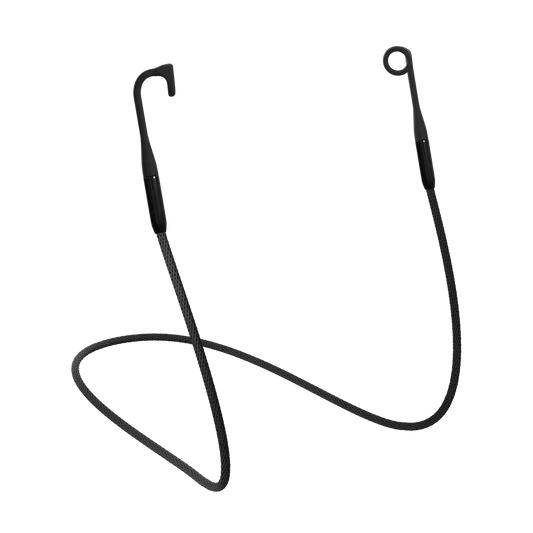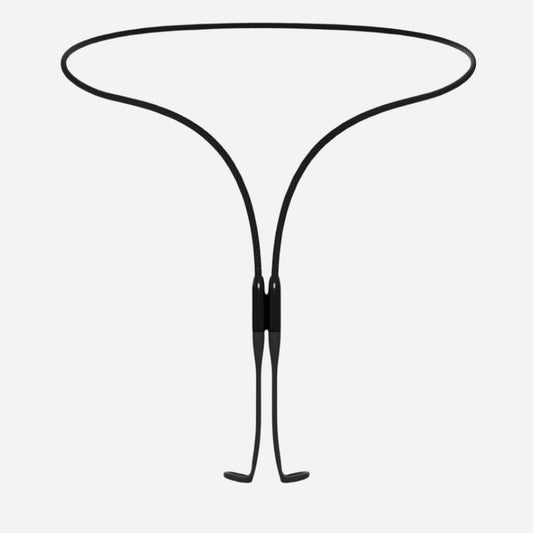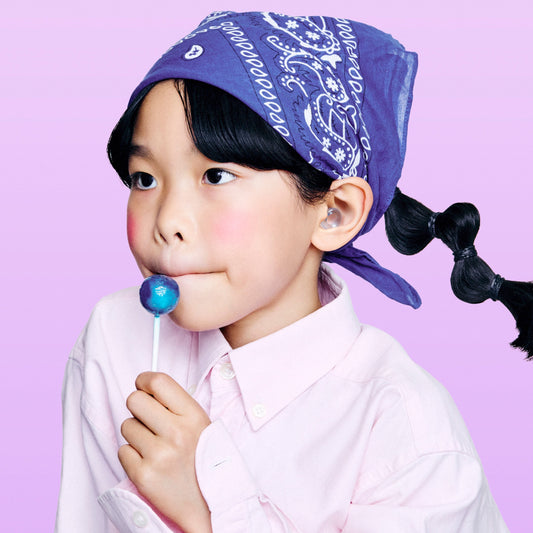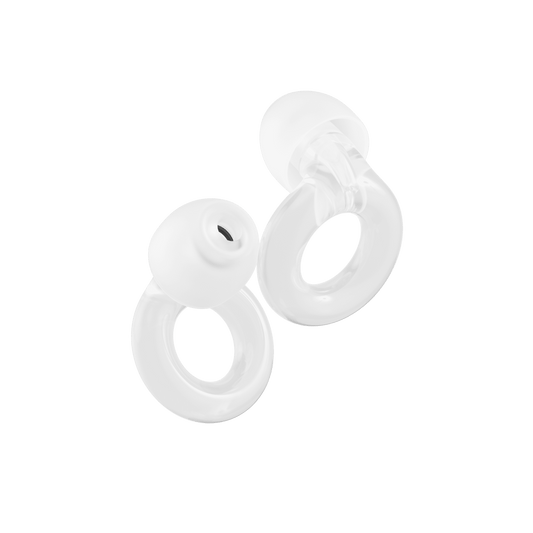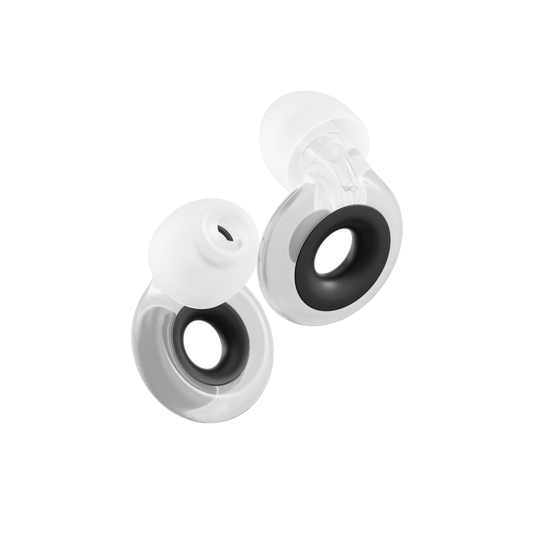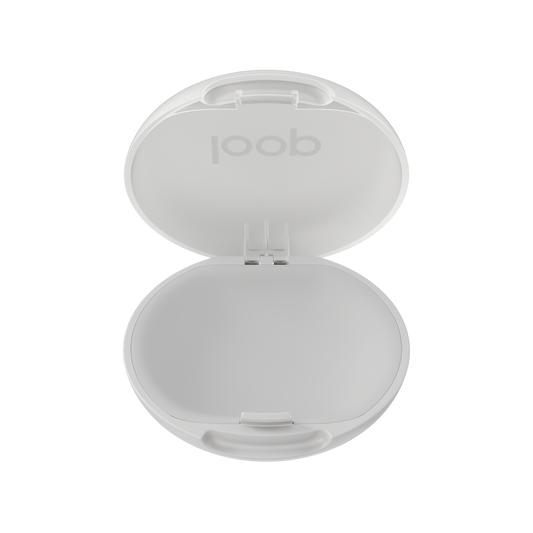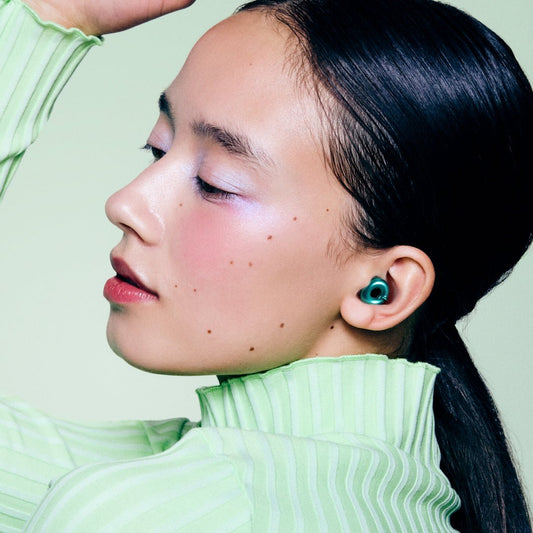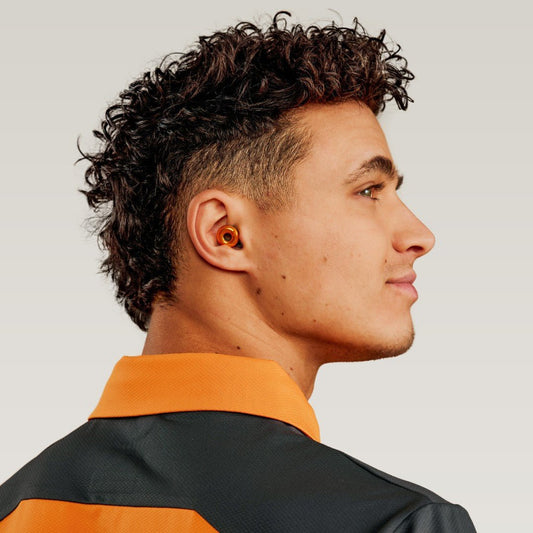Die wichtigsten Erkenntnisse:
- Misophonie ist eine Abneigung gegen Geräusche und wird in der Regel durch sich wiederholende Geräusche wie Klopfen, Kauen und lautes Atmen ausgelöst
- Es handelt sich um eine Art Geräuschempfindlichkeit - etwas, das auch viele Menschen mit ADHS erleben
- Der Zusammenhang zwischen ADHS und Misophonie ist wissenschaftlich noch wenig erforscht, so dass noch nicht ganz klar ist, wie diese beiden Erkrankungen zusammenhängen
- Aber eines ist sicher: Das Leben mit Misophonie kann schwierig und lähmend sein. Aber es gibt Bewältigungsstrategien, die dir helfen, damit umzugehen und ein angenehmeres Leben zu führen!
Wenn jemand mit den Fingern tippt, wiederholt seufzt oder laut atmet, möchtest du am liebsten schreien? Wir alle kennen das - aber für manche Menschen sind diese Geräusche nur ein leichtes Ärgernis, während sie bei anderen Gefühle von Wut, Ekel und das Bedürfnis auslösen, der Situation körperlich zu entkommen.
Dafür gibt es einen Namen: Misophonie. Es handelt sich um eine selektive Geräuschempfindlichkeitsstörung - und im Extremfall kann sie das Leben der Betroffenen völlig durcheinander bringen.
Eine Überempfindlichkeit gegenüber Geräuschen ist ein Problem, mit dem viele Menschen mit Aufmerksamkeitsdefizit-Hyperaktivitätsstörung (ADHS) zu kämpfen haben. Was ist also der Zusammenhang zwischen Misophonie und ADHS? Ist Misophonie mit ADHS verbunden? Ist Misophonie in der Tat eine Form von ADHS? Oder ist Misophonie ein Symptom von ADHS? Werfen wir einen genaueren Blick auf die beiden Erkrankungen und die möglichen Verbindungen zwischen ihnen.
Misophonie verstehen
Die eigentliche Bedeutung von Misophonie ist "Hass auf Geräusche". Der Begriff leitet sich aus den altgriechischen Wörtern für "Hass" und "Stimme" oder "Klang" ab. Die Wissenschaft und die Medizin sind sich immer noch nicht einig, wie sie die Misophonie klassifizieren sollen - ist sie eine Störung oder eine psychiatrische Erkrankung? Misophonie ist immer noch eine sehr "junge" Krankheit - sie wurde erst 2001 zur Anerkennung vorgeschlagen und dann Diagnose im Jahr 2013. Sie gilt immer noch nicht als offiziell diagnostizierbares Leiden. Sogar über den Begriff "Krankheit" ist man sich nicht einig - manche Wissenschaftler nennen es ein Syndrom oder sogar nur ein Symptom.
In einem Punkt sind sich jedoch alle einig: Die Symptome der Misophonie sind für die Betroffenen sehr real.
Die Auslöser für Misophonie sind von Person zu Person sehr unterschiedlich, aber oft sind es sich wiederholende Geräusche wie Kauen, Lippenschmatzen und Schlucken. Weitere häufige Auslösegeräusche sind:
- Schnüffeln
- Klopfen
- Lautes Seufzen
- Lecken von Haustieren
- Aneinander reibende Stoffe
- Klickende Stifte
- Atmen
Für die meisten Menschen mögen diese Geräusche harmlos erscheinen - aber bei Menschen mit Misophonie können diese Geräusche intensive emotionale Reaktionen auslösen.
Die häufigste Emotion, die ausgelöst wird, ist Wut, aber es gibt auch noch andere, z. B.:
- Angst
- Abscheu
- Ungeduld
- Intensiver Stress
- Das Gefühl, gefangen zu sein oder festzustecken
Im schlimmsten Fall kann die Misophonie zu einer überwältigenden "Kampf- oder Fluchtreaktion" oder sogar zu einer Panikattacke führen.
Die Auswirkungen der Misophonie auf das tägliche Leben der Betroffenen können erheblich sein. Der ständige Kontakt mit den auslösenden Geräuschen kann schwer zu bewältigen sein und zu hohem Stress, Konzentrationsschwierigkeiten, gestörtem Schlafverhalten und geringer Produktivität führen.


Für manche Betroffene sind die auslösenden Geräusche so selten oder ungewöhnlich, dass sie sie im Alltag ziemlich gut vermeiden können - aber für Menschen, die durch alltägliche Geräusche wie Essen oder Atmen ausgelöst werden, ist das einfach nicht praktikabel. Das bedeutet, dass die Gefahr, den auslösenden Geräuschen ausgesetzt zu sein, Menschen mit Misophonie sogar dazu bringen kann, zu Hause zu bleiben, um unwillkommene Geräusche zu vermeiden, was zu Isolation führen kann.
All dies kann erhebliche Auswirkungen auf die psychische Gesundheit und das Wohlbefinden haben und zu Angststörungen, Depressionen oder anderen psychischen Problemen führen, wenn es nicht behandelt wird.
ADHS entschleiern
ADHS ist eine Erkrankung, die sowohl Kinder als auch Erwachsene betrifft und die durch anhaltende Muster von Unaufmerksamkeit, Impulsivität oder Hyperaktivität gekennzeichnet ist, die alle das tägliche Funktionieren und die Entwicklung beeinträchtigen können.
Zu den häufigen Symptomen von ADHS gehören Schwierigkeiten, die Aufmerksamkeit bei Aufgaben aufrechtzuerhalten, häufige Flüchtigkeitsfehler, Impulsivität, Schwierigkeiten beim Warten, übermäßiges Reden und Unruhe. Viele Menschen mit ADHS sind auch empfindlich gegenüber Sinneseindrücken, zum Beispiel gegenüber Lärm.
Neben diesen Symptomen haben manche Menschen mit ADHS auch Probleme mit der Organisation, dem Zeitmanagement, der Pflege von Beziehungen und der Regulierung von Emotionen. Diese Schwierigkeiten können sich auf das Selbstwertgefühl, den Erfolg und die allgemeine Lebensqualität auswirken.
Die genauen Ursachen von ADHS sind noch nicht vollständig geklärt, aber es wird vermutet, dass genetische Faktoren eine wichtige Rolle spielen: Untersuchungen haben gezeigt, dass Eltern und Geschwister von Menschen mit ADHS mit größerer Wahrscheinlichkeit selbst an ADHS leiden. Andere mögliche Ursachen sind:
- Unterschiede in der Gehirnstruktur bei Menschen mit ADHS
- Menschen, die zu früh geboren wurden
- Menschen mit Epilepsie
- Rauchen, Alkohol- oder Drogenmissbrauch während der Schwangerschaft
Die sich überschneidenden Symptome
Da die Misophonie erst am Anfang ihrer wissenschaftlichen Anerkennung steht, gibt es nur wenige Studien zu ADHS und Misophonie. Einige Forschungen haben einen möglichen Zusammenhang mit ADHS aufgezeigt, aber bei einer so kleinen Beweisbasis kann ein schlüssiger Zusammenhang noch nicht festgestellt werden.
Auch wenn wir keinen schlüssigen Zusammenhang mit Misophonie herstellen können, gibt es seit langem eine klare Verbindung zwischen ADHS und sensorischer Überempfindlichkeit, einschließlich Geräuschen.
ADHS-Betroffenen fällt es oft schwer, umgebende oder irrelevante Sinnesreize herauszufiltern. Diese Reizüberflutung kann jemanden mit ADHS leicht überwältigen und es ihm unmöglich machen, sich auf die eigentliche Aufgabe oder Situation zu konzentrieren.
Stell dir vor, du triffst dich mit einem Freund zum Mittagessen in einem Straßencafé in einer belebten Stadt. Wir, die wir kein ADHS haben, sind uns in gewisser Weise bewusst, dass es draußen laut ist, dass viele Leute vorbeilaufen oder dass wir das Essen aus der Burger-Bar zwei Häuser weiter riechen können.
Für jemanden mit ADHS könnte jeder einzelne dieser Inputs - und die Millionen weiteren, die gleichzeitig passieren - dazu führen, dass er nicht mehr in der Lage ist, ein Gespräch zu führen oder auf das zu achten, was sein Freund tut oder sagt.
Ähnlich wie bei der Misophonie führt diese Art von Erfahrung wahrscheinlich zu Stress, Wut, Angst und dem Bedürfnis zu fliehen. Für ADHS-Betroffene kann dies eine doppelte Belastung sein, denn ein häufiges Symptom der Krankheit ist die Schwierigkeit, Gefühle zu regulieren und zu kontrollieren.
Menschen, die sowohl an ADHS als auch an Misophonie leiden, haben oft Probleme, sich zu konzentrieren, reagieren empfindlicher auf äußere Reize und sind impulsiv. Wenn du dich zum Beispiel aufgrund von Hintergrundgeräuschen nur schwer auf eine Aufgabe konzentrieren kannst und ein Gefühl von Wut oder Impulsivität verspürst, könnte dies entweder auf ADHS oder Misophonie zurückzuführen sein - oder du hast beides.
Neurologische und psychologische Verbindungen
Sowohl bei Misophonie als auch bei ADHS kann es zu Anomalien in den neurologischen Bahnen kommen, die mit der sensorischen Verarbeitung und der emotionalen Regulation zusammenhängen. A Studie aus dem Jahr 2017 ergab, dass die emotionalen Verarbeitungszentren des Gehirns extrem reagieren, wenn Menschen mit Misophonie Triggergeräusche hören, während eine Studie aus dem Jahr 2021 fand heraus, dass Menschen mit Misophonie größere Amygdalas (der Teil des Gehirns, der für die Auslösung der Kampf- oder Fluchtreaktion verantwortlich ist) haben können. Das bedeutet, dass eine größere Amygdala für die übertriebene Reaktion auf Triggerreaktionen bei Menschen mit Misophonie verantwortlich sein könnte, verglichen mit Menschen ohne diese Erkrankung.
Viele Menschen mit ADHS haben auch Probleme mit der sensorischen Verarbeitung, was die ähnlichen Reaktionen auf Geräusche bei Menschen mit beiden Erkrankungen sowie die Überschneidungen bei Menschen, die sowohl an ADHS als auch an Misophonie leiden, erklären könnte.
Das zentrale Nervensystem ist dafür zuständig, sensorische Informationen zu empfangen, zu verarbeiten und darauf zu reagieren. Das bedeutet, dass es dafür verantwortlich ist, wie wir denken, fühlen und uns bewegen - aber bei Menschen mit ADHS funktioniert es etwas anders. Das kann dazu führen, dass es schwieriger wird, einer Aufgabe Aufmerksamkeit zu schenken, organisiert zu bleiben und zu denken, bevor man handelt. Manche Menschen mit ADHS haben auch Schwierigkeiten, irrelevante Sinneseindrücke herauszufiltern, was dazu führt, dass sie sich von Anblicken, Geräuschen oder Berührungen überwältigt fühlen.


Die Auswirkungen auf das tägliche Leben
Sowohl Misophonhie als auch ADHS können den Alltag erheblich beeinträchtigen, sei es zu Hause, in der Schule oder am Arbeitsplatz, Arbeit oder im sozialen Umfeld.
In der Schule können Menschen mit Misophonie oder ADHS in lauten Klassenzimmern oder bei Prüfungen Schwierigkeiten haben, sich zu konzentrieren, was zu Leistungseinbußen und erhöhtem Stress führt. Auch im beruflichen Umfeld können sowohl Misophonie als auch ADHS die Produktivität und Leistung beeinträchtigen. Es kann zum Beispiel schwierig sein, sich in einem Großraumbüro zu konzentrieren, in dem man den Geräuschen nicht entkommen kann.
Viele Menschen, die sowohl an Misophonie als auch an ADHS leiden, finden es auch schwierig, sich an sozialen Aktivitäten zu beteiligen. Wenn du Angst hast, Triggergeräusche zu hören, meidest du vielleicht Partys, Restaurantbesuche und andere gesellschaftliche Veranstaltungen - was zu einem Gefühl der Isolation führen kann. Außerdem können Menschen mit ADHS mit anderen Problemen zu kämpfen haben, z. B. mit Schwierigkeiten, Gesprächen zu folgen, was zu weiteren sozialen Ängsten führen kann.
Und zu Hause können viele kindliche Geräusche, so sehr Eltern ihre Kinder auch lieben, für geräuschempfindliche Menschen auslösend sein (wir reden hier von Kauen mit offenem Mund, Schnüffeln, Weinen und Schreien). Das kann die Bewältigung des Alltags erschweren, und viele Eltern mit Misophonie oder ADHS sehnen sich nach ein wenig Ruhe.
Behandlungsansätze
Es gibt viele verschiedene Ansätze sowohl für ADHS als auch für Misophonie - manchmal braucht es also ein wenig Versuch und Irrtum, um den richtigen für dich zu finden.
Misophonie-Behandlung können folgende Optionen sein:
- Tinnitus-Retraining-Therapie, die dir helfen kann, Geräusche besser zu ertragen
- Gegenkonditionierung, die dabei helfen kann, deine Reaktion auf einen Auslöser zu verändern
- Kognitive Verhaltenstherapie, die dir helfen kann, deine Gedanken, Gefühle und Reaktionen auf bestimmte Situationen zu ändern
Für ADHS gibt es unter anderem folgende Behandlungsmöglichkeiten:
- Medikamente
- Therapie, einschließlich kognitiver Verhaltenstherapie, Psychotherapie und Training sozialer Fähigkeiten
Sowohl bei Misophonie als auch bei ADHS kann ein multidisziplinärer Ansatz die beste Lösung für dich sein. Eine Kombination aus Therapie, Medikamenten, Veränderungen in der Umgebung und Anpassungen des Lebensstils kann dir die nötige Unterstützung geben und dazu beitragen, deine Symptome zu verringern und deine Lebensqualität zu verbessern. Es ist immer eine gute Idee, sich von einem Fachmann beraten zu lassen, damit du sicher sein kannst, dass du die richtigen Behandlungsmöglichkeiten bekommst, die zu deiner persönlichen Situation passen.
Bewältigungsstrategien und Unterstützung
Wenn du an Misophonie, ADHS oder beidem leidest, gibt es verschiedene Bewältigungsstrategien, die du einsetzen kannst - ebenso wie Therapien und Medikamente - um deine Symptome zu bewältigen und deinen Alltag zu verbessern.
Es gibt viele Überschneidungen, wenn es um die Arten von Bewältigungsstrategien geht, die du in Betracht ziehen kannst - aber wie bei den Behandlungsoptionen kann es einige Zeit dauern, bis du herausfindest, welche Optionen für deine individuellen Bedürfnisse am besten geeignet sind. Einige Möglichkeiten sind:
- Die Verwendung von lärmreduzierenden Ohrstpsel, um die Belastung durch Triggergeräusche in lauten Umgebungen zu reduzieren, damit du dich wohler fühlst und dein Leben leben kannst
- Entspannungstechniken wie tiefes Atmen und Achtsamkeit, die den Stress und die Angst, die mit Triggergeräuschen verbunden sind, reduzieren können
- Die Verwendung von Statikrauschen, um sich wiederholende oder laute Triggergeräusche auszublenden und sich entspannter zu fühlen
- Die Teilnahme an einer Selbsthilfegruppe, um emotionale Bestätigung und praktische Hilfe zu erhalten
Außerdem spielen Aufklärung und Bewusstsein eine entscheidende Rolle, um die Stigmatisierung zu verringern und das Verständnis für diese Erkrankungen zu fördern. Wenn du die beiden Krankheiten besser verstehst - egal, ob du eine, die andere oder beide hast - können sich Menschen mit Misophonie und ADHS befähigt fühlen, Hilfe zu suchen und Ressourcen für einen effektiven Umgang mit ihren Symptomen zu finden.
Die wichtigsten Erkenntnisse
Sinnesüberempfindlichkeit ist bereits eine bekannte Untergruppe der Symptome von ADHS. Obwohl also eine extreme Unverträglichkeit gegenüber bestimmten Geräuschen ein gemeinsames Merkmal von Misophonie und einigen Formen von ADHS ist, bedeutet das nicht zwangsläufig, dass jemand mit ADHS und einer Überempfindlichkeit gegenüber Geräuschen auch als Misophonie bezeichnet werden würde.
Was die wissenschaftliche Forschung angeht, so steht sie noch am Anfang. Vielleicht findet sich noch ein klarerer Zusammenhang, der Aufschluss darüber gibt, warum die beiden Krankheiten so viele Gemeinsamkeiten haben - und der hoffentlich dazu beiträgt, dass Betroffene in unserer lauten modernen Welt etwas Ruhe finden.
Doch unabhängig von der vereinbarten Terminologie oder der Diagnose können die Symptome für manche Menschen lähmend sein. Wenn das auf dich oder jemanden, den du kennst, zutrifft, solltest du das nicht alleine tun.
Es gibt Hilfe und Unterstützung, um mit sensorischen Symptomen umzugehen, die dich belasten und dir das Leben schwer machen - egal, ob du an Misophonie, ADHS oder etwas anderem leidest.













